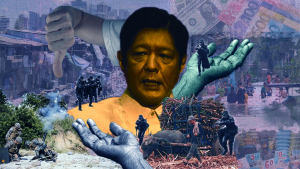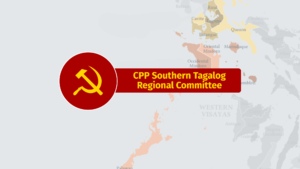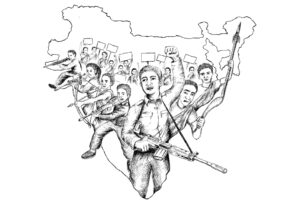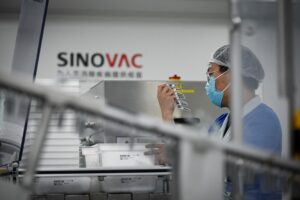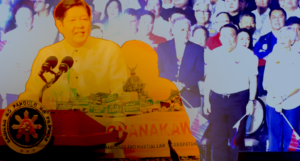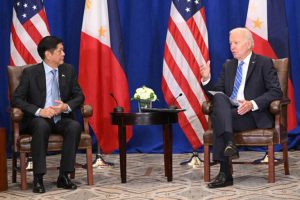Demand an end to rice import liberalization, advance the struggle for genuine land reform
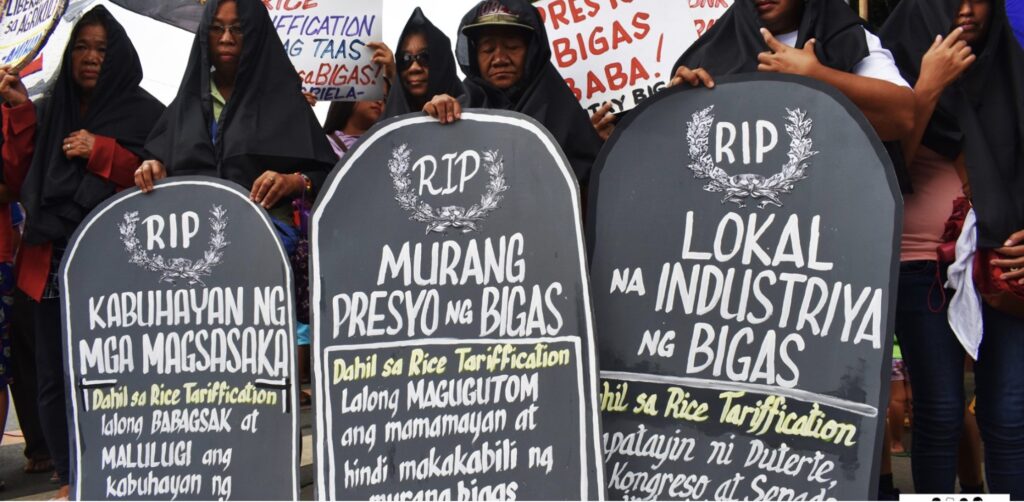
The Communist Party of the Philippines (CPP) expresses its support for the broad masses of peasant and the Filipino people in pushing the demand for the repeal of the Rice Liberalization Law (RLL). Currently being reviewed in the congress, the RLL is an oppressive law that has aggravated the situation of palay farmers and pushed many into bankruptcy and hunger. As farmers previously warned, the law has failed to fulfill its promise of bringing down the prices of rice and made the country even more dependent on imported rice.
All-out liberalization of rice importation exacerbated the suffering of tenant farmers, who are already overburdened by high prices of fertilizers and other input, mounting debt, high land rent, and low farmgate prices. Because rice land remains in the hands of a few big landlords, palay production, in the main, remains largely small-scale, manual and backward. Irrigation systems, machineries and facilities for planting, harvesting and drying are grossly lacking.
Under the RLL, the state makes token procurement of locally produced palay, which has negligible effect, both to the rice market and the livelihood of peasant producers. The ₱9 billion budget of the NFA is enough only to buy 2% of total local production. Moreover, it buys only “dry” palay at ₱20-₱23 per kilo, leaving the vast majority of small peasant, who do not have access to drying facilities and are compelled to immediately sell their “wet palay” to pay off debts, to sell as low as ₱15-₱16 per kilo to profit-hungry big commercial traders.
The biggest beneficiaries of the RLL are the big bourgeois compradors involved in rice trading, in connivance with foreign finance capital and bureaucrat capitalists favored by the Marcos regime (and by the previous Duterte regime). They engage in price gouging through control of rice supply, including large-scale hoarding of supplies. Using the RLL as facade, rice smuggling has also been stepped up.
Contrary to promises of the RLL, rice prices continue to go up. Well-milled rice now sells at ₱52 to ₱54 per kilo, which is at least 35% higher compared to when the law was enacted in February 2019. This is the result of several factors including price manipulation by commercial traders who were given greater leverage to control supply and prices, by increasing dependence on imports (up to 23% in 2022 from 5% in 2016, 15% in 2020, and 18.5% in 2021) which subjects the country to price speculation in the international rice market, and by rising costs of local production which remains small-scale and backward and ever dependent on imported fertilizers and other production input.
Funds generated by tariffs collected under the RLL accrue to the so-called rice competitiveness enhancement fund, set at an annual ₱10 billion, none of which go directly to subsidize small peasant producers. Up to 50% of the fund go to so-called mechanization, most of which went to importation of overpriced tractors. Another 30% of the fund go to the PhilRice (the International Rice Research Institute), which promotes research serving the interests of big multinational agribusiness corporations.
Under the law, a mere 10% goes to “financial assistance” that would amount to a mere ₱500 for every small farmer numbering 2.3 million registered under the reactionary state’s registry. Last year, Marcos used this fund to augment a rice farmers financial assistance program, under which individuals received a mere ₱5,000, which will cover a mere 1% of the total cost of production for a 2-hectare paddy. Marcos is highly contemptible for distributing this miniscule amount amid the El Niño-induced droughts that have brought disaster to wide swathes of the countryside.
The rice import liberalization law further reinforced the neoliberal policies which have resulted in land-use conversion, land grabbing by real estate companies, big mining companies and plantations, economic dispossession and displacement, rural unemployment, bankruptcy and greater hardships for the peasants masses. These have condemned the Philippines to its import-dependent, export-oriented, backward agrarian economy. The broad peasant masses are fully justified in vigorously pushing the repeal of the RLL.
The demand to put an end to rice import liberalization is firmly bound to the clamor for genuine land reform. The free distribution of land is the principal demand of the masses of landless peasants and farm-workers, to end their centuries long feudal bondage, in which a great part of the fruits of their labor go to landlords, subjecting them to perpetual hardship and poverty. Genuine land reform is also the key solution to the backward rural economy as it will provide the impetus for improving agricultural and raising output.
Genuine land reform is the principal content of the national democratic program, which alongside national industrialization, seeks to end oppression and exploitation under the current semicolonial and semifeudal system. The struggle for national and social liberation must be won in order to create the conditions for building a new system that is just, modern and prosperous.

